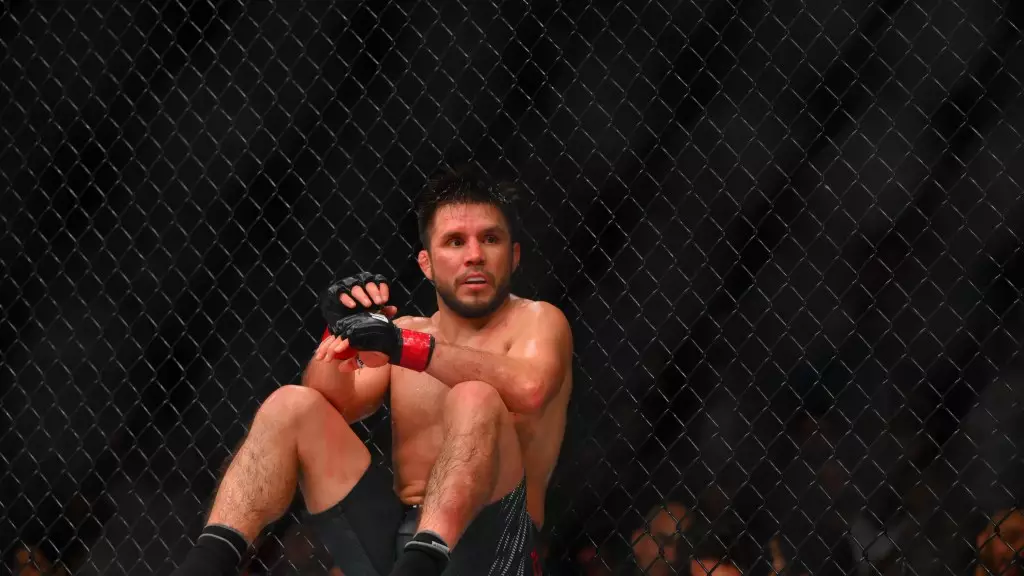The realm of mixed martial arts (MMA) is one fraught with numerous risks, both physical and psychological. Eye pokes, despite being one of the most egregious infractions in combat sports, often fly under the radar when it comes to penalties. Recently, the subject was brought to the forefront following an incident during the UFC Fight Night 252 main event, where Song Yadong faced off against Henry Cejudo. The aftermath of this fight has reignited the debate around the enforcement of stricter regulations to protect fighters.
During the match, Cejudo sustained an accidental eye poke from Yadong, a moment that severely impacted the trajectory of the bout. With the fight temporarily halted, Cejudo took the recovery time offered, only to inform his corner and ringside doctor between rounds that he was unable to see. Ultimately, the fight was called off, leading to a technical decision victory for Yadong. This situation raises questions not only about the immediate health of the fighters involved but also about the consequences of foul play in the sport.
Michael Bisping, a prominent figure in MMA and a former middleweight champion, voiced his strong opinion on the matter, demanding stricter penalties for eye pokes. Bisping’s perspective carries weight, informed by his own unfortunate history with eye injuries. His personal experience—a detached retina—underscores the severity of such injuries in combat sports. He argues convincingly that lack of immediate consequences encourages fighters to disregard the importance of maintaining proper fighting form, subsequently risking the safety of their opponents.
Bisping’s remarks highlight an essential aspect of the fight: the immediate repercussions of eye pokes. Suggested penalties, such as point deductions, could serve to underline the seriousness of such offenses, possibly deterring fighters from careless actions that compromise their opponents’ safety. The absence of stringent measures poses a significant risk, allowing dangerous behavior to persist in the sport.
The MMA community has to confront the reality that eye pokes are not merely accidents but can have dire consequences for fighters. Rather than letting incidents slide by, it’s crucial for regulatory bodies to establish clearer guidelines. This includes not only imposing point deductions but also implementing educational programs that emphasize the importance of fighter safety. Referees, too, need to take a more proactive role in monitoring fighters’ hand positioning to prevent such occurrences.
As seen in the emotional aftermath of the fight, Cejudo was visibly injured and even called for a rematch, exemplifying the ongoing impact of the eye poke. This incident could have lasting ramifications not only for the fighters involved but for the sport’s integrity as well. By addressing these infractions with the seriousness they warrant, the MMA community can work toward creating a safer, more respectful environment for fighters.
As the debate intensifies, the voices advocating for change like Bisping’s must not be ignored. Stricter penalties for eye pokes are not just about correcting a single event—they signify a broader commitment to fighter safety and the integrity of MMA as a sport. Only through diligent oversight and enforced accountability can we hope to mitigate the risks that fighters face inside the octagon. It is time for the sport to evolve and enforce standards that protect the competitors who dedicate their lives to this beloved discipline.

